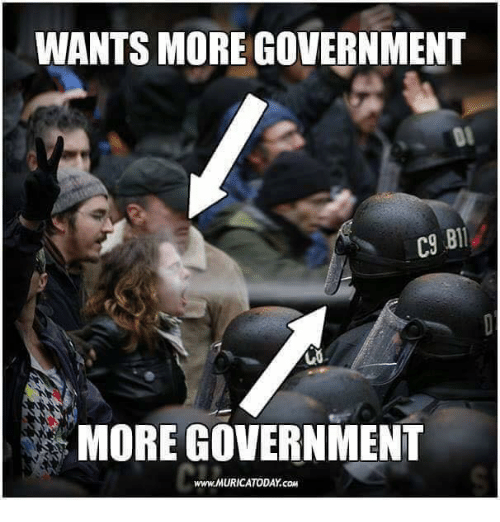Chris Bray responds to a post by Leighton Woodhouse that declares that “left libertarianism” has won the battle for the soul of the American left:
I see two traditions on the American political left.
One is a tradition skeptical of authority, or aggressively hostile to it: Striking miners battling Coal and Iron Police, or Pinkertons, or Colorado sheriffs, or the National Guard; Wobblies fighting cops in the street; Great War-era socialists attacking the military draft, and going to prison for it; the Weatherman planting bombs in police and military offices. This tradition on the left views government as authority, a repressive servant of the status quo — “the executive committee of the bourgeoisie”. Leftists in this tradition say that of course government serves capitalism and corporate power, and of course the government isn’t on our side. Go back to the Coal and Iron Police to see how radical labor activists saw them: state-sanctioned police, with badges, on the private payroll of the industrialists. The young radical George Orwell, writing about his time fighting in Spain: “When I see an actual flesh-and-blood worker in conflict with his natural enemy, the policeman, I do not have to ask myself which side I am on.”
The other is a tradition centered on the supposedly inherent decency, wisdom, and fairness of government, a tradition that runs through the capital-p Progressive Era and Woodrow Wilson, to the New Deal, and onward into the Great Society. In this tradition, state power is benevolence itself, and points its kindness downward. Government interposes itself between the downtrodden worker and the power of the wealthy, ensuring the dignity of the poor. Tax the rich! In this tradition, government represents our best selves, our highest yearning for a better world. Why, just look at how much more equitable the progressive income tax made our social order, back when marginal tax rates were so much more fair at the top. Government serves, protects, nurtures: It’s the tool of the ordinary man, offering the noble guarantees of Social Security and Medicaid. Of course government is on our side, fellow downtrodden, and we need more of it.
Those two traditions don’t fit together, though the obvious way to square the circle is to say that a Bill Ayers opposes the power of the state when it opposes him, and embraces it if he thinks his side has come to control it. This would mean that there aren’t two ideological traditions — just two different instrumental postures. But no one who survived the Ludlow Massacre thought the government was a benevolent servant of the working man.
As Leighton Woodhouse notes, we have a good deal of what looks like anti-authority leftism in our cities, in the form of movements that call for the end of mass incarceration, the defunding of the police, and the transition to a social services model in response to homelessness and drug addiction. In this view, rising crime and growing homelessness are signs of urban leftists rejecting authority as a tool. Homelessness is not a crime, you fascists!
But I’ve written before about the incredible strangeness of progressive political columnists denouncing Donald Trump’s vicious authoritarianism, and then proudly pivoting to an expression of their approval of the warm and caring Justin Trudeau — who cracked down on incipient Trumpism in his country by boldly freezing the bank accounts of dangerous participants in the evil right-wing truck convoy. When government freezes the bank accounts of protesters, government is fighting against authoritarianism, obviously. More government power means less authoritarianism!




